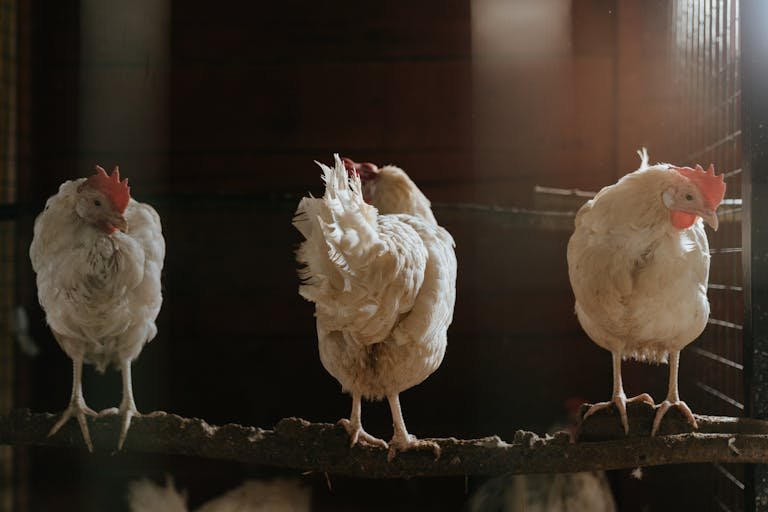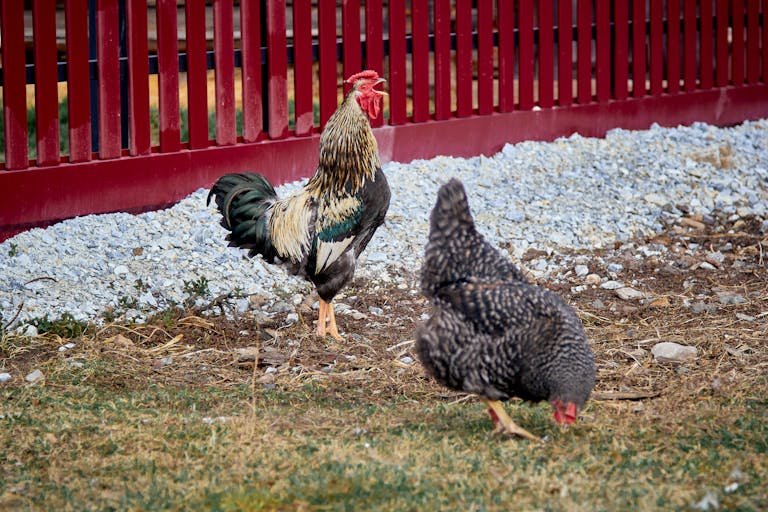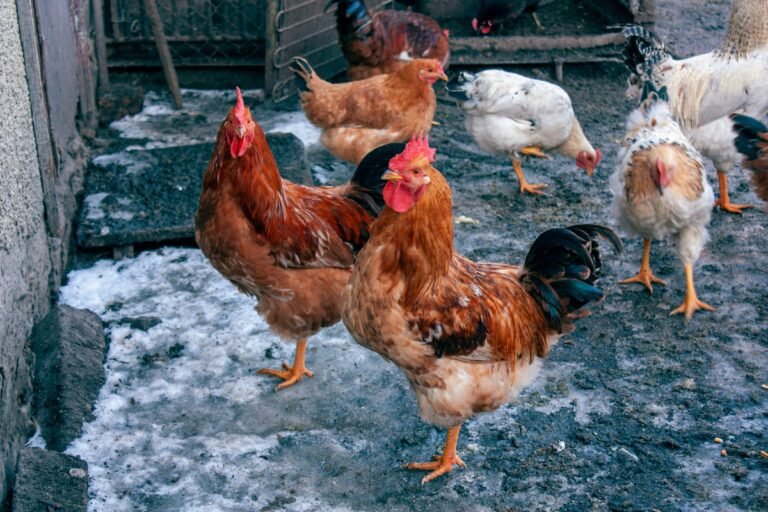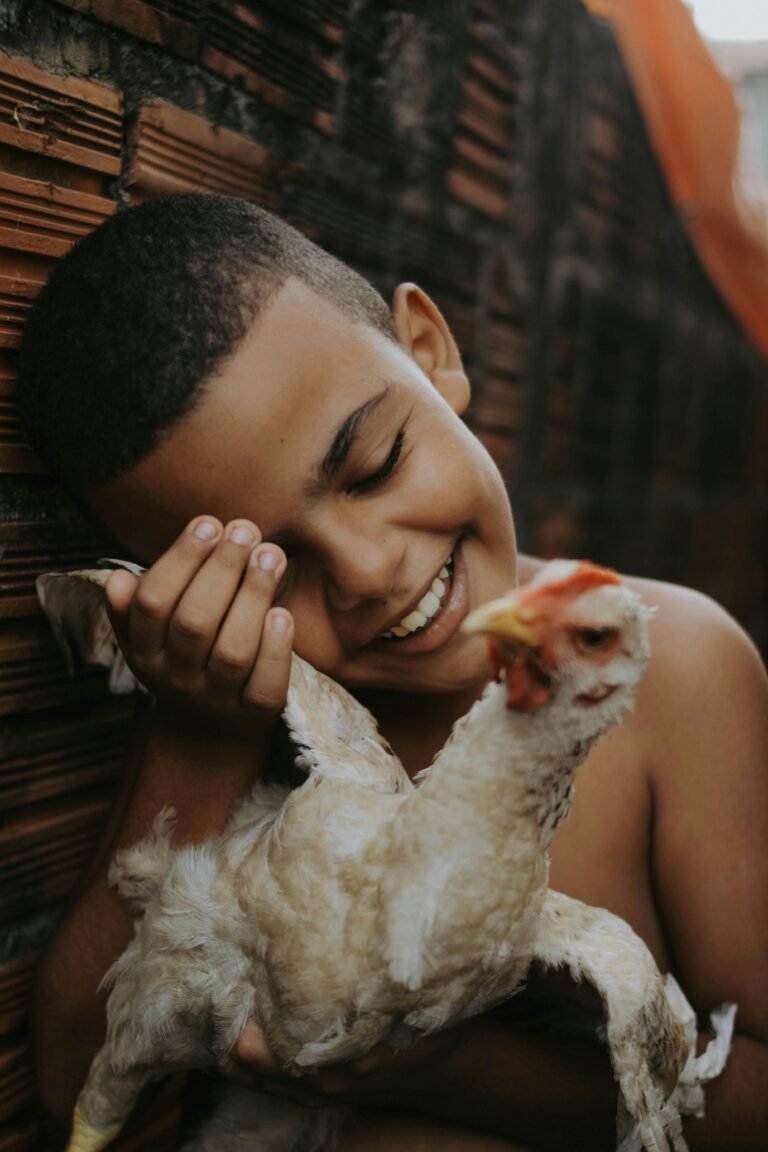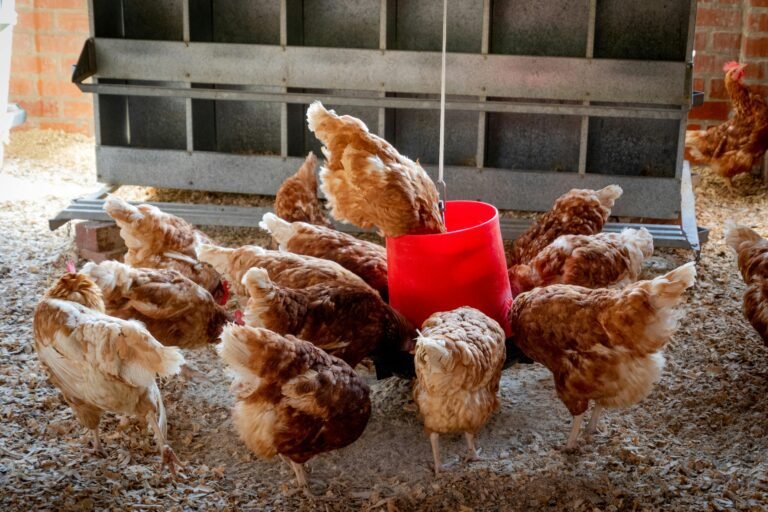Stop Your Chickens’ Diarrhea Now: Effective Home Remedies

Diarrhea in chickens can be alarming for any poultry owner. Loose, watery stools may signal a range of issues from minor dietary imbalances to more severe diseases. It’s essential to know how to address the problem swiftly and effectively, ensuring the health of your flock. In this blog, I will guide you through the Chickens’ Diarrhea, treatment strategies, and prevention measures to help you manage diarrhea in chickens.
How to Identify Diarrhea in Chickens
It’s essential to differentiate between normal stool and diarrhea. Chicken droppings vary in consistency depending on what they eat, but diarrhea is characterized by watery or overly loose droppings.
Other signs that accompany diarrhea include:
- Foul smell from droppings
- Dehydration (pale combs, lethargy)
- Weight loss
- Droopiness or listlessness in affected chickens
Vaccines and Medications for Diarrhea in Chickens
| Vaccine/Medication | Purpose | Administration | Precautions |
|---|---|---|---|
| Typically administered to chicks via drinking water or feed. | Prevents coccidiosis, a parasitic infection that often causes diarrhea. | Typically administered to chicks via the drinking water or feed. | Follow the manufacturer’s instructions for dosage and timing. |
| Antibiotics | Treats bacterial infections that can cause diarrhea. | Administered orally or through injection, depending on the antibiotic and the severity of the infection. | Consult a veterinarian to determine the appropriate antibiotic and dosage. |
| Antiparasitics | Treats parasitic infections like roundworms, tapeworms, and coccidiosis that can lead to diarrhea. | Administered orally or through injection. | Follow the manufacturer’s instructions for dosage and timing. |
| Probiotics | Helps restore the balance of gut bacteria, which can be disrupted by diarrhea. | Administered orally in the drinking water or feed. | Consult a veterinarian for specific recommendations. |
| Electrolyte Replacer | Replaces lost electrolytes and fluids in cases of severe diarrhea. | Administered orally in the drinking water or through injection. | Follow the manufacturer’s instructions for dosage and timing. |
| Vitamins and Minerals | Supports overall health and helps the body recover from diarrhea. | Administered orally in the drinking water or feed. | Consult a veterinarian for specific recommendations. |
Treatment Strategies for Diarrhea in Chickens
Once you’ve identified the cause of diarrhea, you can begin treatment. Below are the steps I recommend to treat chickens with diarrhea effectively.
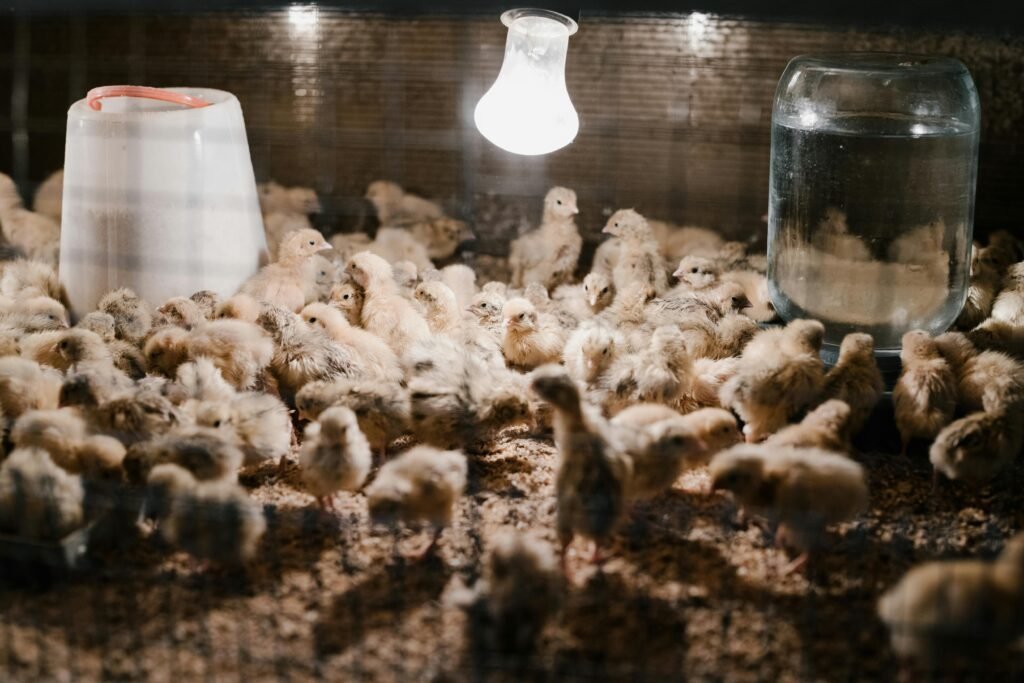
1. Isolate Affected Birds
The first step in treating diarrhea is to isolate the chickens that are showing symptoms. This helps prevent the spread of infections, especially if the diarrhea is caused by a contagious pathogen like coccidia or a bacterial infection.
- Create a Quarantine Area: Set up a separate, clean area away from the main flock to house the affected birds.
- Minimize Contact: Ensure other chickens do not come into contact with the isolated bird’s droppings, as this could transmit any infectious agents.
2. Provide Clean Water and Food
Hydration is critical when treating chickens with diarrhea, as they can quickly become dehydrated due to fluid loss.
- Electrolyte Solutions: You can add electrolytes to the water to help them recover their strength. These can be purchased from feed stores or made at home using sugar, salt, and baking soda.
- Clean, Fresh Water: Ensure they always have access to clean, uncontaminated water. Avoid using dirty containers, as these can harbor bacteria.
- Balanced Diet: Offer a diet that is easy to digest, such as high-quality commercial chicken feed. Avoid giving them greens, fruits, or any wet foods until they have fully recovered.
3. Improve Sanitation
Poor hygiene in the coop can aggravate diarrhea and spread the underlying cause to other chickens.
- Clean the Coop Regularly: Disinfect the coop, feeders, and waterers thoroughly. Use a poultry-safe disinfectant to reduce bacterial and parasitic load.
- Change Bedding: Replace dirty or wet bedding with dry, clean material to improve hygiene.
4. Consider Probiotics
Probiotics can help to restore the healthy balance of gut bacteria in chickens, especially after an episode of diarrhea. I recommend consulting a veterinarian before administering probiotics to ensure proper dosage and product selection.
- Yogurt or Commercial Probiotics: You can offer plain, unsweetened yogurt in small amounts, or you can purchase commercial poultry probiotics from your local feed store.
5. Veterinary Consultation
If diarrhea persists for more than a couple of days, or if your chicken is showing other symptoms like lethargy, weight loss, or abnormal behavior, it’s time to consult a veterinarian.
- Diagnostic Tests: A vet can perform tests to identify parasites, bacteria, or viruses that may be causing the issue.
- Medication: Depending on the diagnosis, the vet may prescribe antibiotics for bacterial infections or anti-parasitic medications for worm infestations or coccidiosis.
Prevention Measures for Diarrhea in Chickens
Preventing diarrhea is much easier than treating it. By taking proactive steps, you can maintain the health of your flock and avoid future outbreaks of diarrhea.
1. Maintain Proper Hygiene
One of the best ways to prevent diarrhea is by keeping your coop clean and dry. Regularly cleaning and disinfecting your coop and changing the bedding are essential parts of flock management.
- Regular Cleaning: Clean the coop weekly or more frequently during wet weather, as moisture can increase the growth of bacteria and parasites.
- Proper Ventilation: Ensure the coop is well-ventilated to reduce humidity and prevent the growth of harmful bacteria.
2. Provide a Balanced Diet
Proper nutrition plays a crucial role in preventing diarrhea in chickens.
- Quality Feed: Always feed your chickens a balanced diet consisting of high-quality commercial feed that meets their age and production stage.
- Limit Treats: Avoid overfeeding your chickens with table scraps or high-moisture foods that can upset their digestive balance.
3. Monitor for Signs of Illness
Regularly observing your chickens for signs of illness can help you catch problems early. Pay close attention to changes in their droppings, behavior, and appearance.
- Daily Health Check: Make a habit of checking your chickens daily for any signs of distress, lethargy, or diarrhea.
- Keep a Record: Keep a health log to track any changes in your flock’s behavior, as this will help you detect patterns or issues more quickly.
4. Vaccinate Your Flock
Vaccinations are a vital part of maintaining a healthy flock and preventing diseases that can cause diarrhea.
- Coccidiosis Vaccination: Coccidiosis is a leading cause of diarrhea, and vaccines are available to protect against it.
- Other Vaccinations: Speak to your veterinarian about other recommended vaccinations for your area, such as those for Marek’s Disease or Infectious Bronchitis.
When to Seek Veterinary Help
Although mild diarrhea can often be managed with home care, there are times when you need to call a vet. Here are signs that indicate the need for professional help:
- Persistent Diarrhea: If diarrhea lasts more than two days or gets worse.
- Weight Loss: If your chicken is losing weight rapidly.
- Lethargy: If your chicken is unusually weak, lethargic, or not eating.
- Bloody Stool: Blood in the stool is a sign of a more serious problem, like coccidiosis or a bacterial infection.
- Multiple Chickens Affected: If diarrhea spreads rapidly through the flock, a veterinarian’s intervention is crucial.
Final Words
Diarrhea in chickens is a common issue, but with the right knowledge, you can treat it effectively and keep your flock healthy. The key is identifying the cause, isolating affected birds, providing them with fresh water and a proper diet, and maintaining excellent hygiene in the coop. Prevention through good husbandry practices, a balanced diet, and vaccinations will help reduce the chances of diarrhea occurring in the future. Always remember, when in doubt, consult a vet to ensure that your chickens receive the best care possible.
By following the steps outlined in this guide, you’ll be well-equipped to manage diarrhea in your chickens and ensure the ongoing health of your flock.
